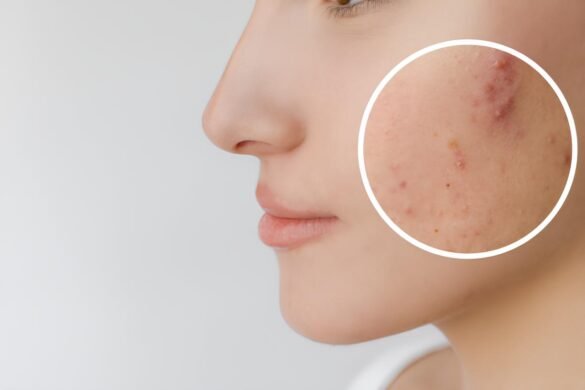It’s a familiar story for many: the mirror reveals not just youthful skin or a fresh complexion, but the stubborn reminders of past acne outbreaks — those unexpected pits, discoloration, and scars that don’t quite fade. But underneath the surface is a deeper layer of feelings, often unspoken, that accompany these visible marks. How many times have you felt self-conscious about a scar that lingers long after the breakout itself healed? Or hesitated to let your natural skin show because of the story written in its texture?
Acne scars are more than skin deep. They carry emotional weight, influencing our confidence, how we see ourselves, and even how we navigate social interactions. This journey isn’t often discussed openly, yet it’s one we can all relate to — whether from adolescence or adulthood.
Understanding the Emotional Impact of Acne Scars
Acne scars often serve as visual reminders of battles fought and emotions endured. The rawness of an active breakout fades quicker than the psychological aftershocks left behind. Many people with acne scars describe feelings of frustration, shame, or even grief over their skin’s appearance.
It’s more than vanity — it’s about identity. When your reflection changes, or you’re reminded daily of skin struggles, it affects self-esteem and self-image. For some, acne scars can become a source of anxiety, especially during social situations or dating, creating a barrier to authentic connection.
These emotions can be intense and deeply personal, often compounded by societal beauty standards that equate clear skin with attractiveness and success.
How Society Shapes Our Skin Confidence
In a world saturated with flawless images—whether on social media, in advertising, or film—the pressure to have perfect skin is relentless. Acne scars challenge this ideal, and in turn, challenge confidence.
Many people experience microaggressions such as unsolicited advice, insensitive comments, or even avoidance from others. These social interactions can reinforce feelings of self-consciousness or invisibility.
But the stigma around acne scars is rooted in misunderstanding rather than truth. Skin is a natural canvas that tells stories, and imperfections are part of every human experience. The cultural concept that “clear skin equals beauty” is evolving, but many still face the challenge of breaking free from this narrow view.
Healthy Ways to Cope and Heal
Recognizing the emotional toll of acne scars is the first step toward healing both inside and out. Here are some compassionate approaches to help nurture your emotional well-being:
- Practice Self-Compassion: Remind yourself that scars are a sign of resilience — your skin has healed and continues to heal.
- Journaling: Write down your feelings about your skin to process emotions in a private, non-judgmental space.
- Mindfulness and Meditation: Ground yourself in the present moment to reduce negative self-talk and anxiety associated with appearance.
- Positive Affirmations: Use daily affirmations focused on self-worth beyond looks. For example, “I am more than my skin.”
- Support Networks: Seek out communities or friends who understand and validate your experience, reducing feelings of isolation.
Find skincare or beauty communities online that focus on skin positivity and realistic challenges. Shared stories can empower your own journey.
When to Seek Professional Help
Sometimes, the emotional challenges feel overwhelming or persistent, affecting daily life and mental health. In such cases, professional support is vital.
Dermatologists can offer effective treatment options to improve the appearance of scars, which may help lessen emotional distress. At the same time, therapists specializing in body image or dermatology-related anxiety can provide tools to cope with deeper emotional wounds.
Your healing journey is holistic — combining skincare with emotional health creates the most sustainable results. Addressing just the skin or only the feelings misses the bigger picture.
Balancing Emotional Care with Skincare Treatment
For many, managing acne scars becomes a blend of empowering self-care and embracing emotional resilience. Topical treatments like retinoids, chemical peels, and microneedling can help fade scars over time. Patience and consistency are key, as skin really does heal gradually.
It’s important to approach skincare with kindness, avoiding harsh products or routines that could cause irritation and further emotional frustration.
Consider pairing your skincare journey with lifestyle adjustments such as:
- Gentle cleansing routines that reduce sensitivity
- Incorporating nourishing oils and moisturizers
- Adopting a balanced diet rich in antioxidants to support skin health
- Protecting your skin daily with SPF, as scarred areas can darken easily in the sun
Remember, skincare is just one part of a bigger emotional picture. Cultivating internal confidence often enhances the way you care for your skin, helping you stay consistent and patient.
FAQ
Can acne scars go away completely?
Many scars improve significantly over time and with treatment, but some types, like deep icepick scars, may never disappear fully. Professional treatments can greatly reduce their appearance.
Does makeup make scars worse?
When used properly, makeup doesn’t damage scars and can boost confidence by evening out skin tone. Always remove makeup gently to avoid irritation.
What are some non-invasive treatments for acne scars?
Options include chemical peels, microdermabrasion, laser therapy, and microneedling. Consultation with a dermatologist will help determine the best route.
How can I improve my mindset about scars?
Focusing on self-compassion, educating yourself about skin healing, and connecting with supportive communities can foster a healthier relationship with your appearance.
A New Chapter in Your Skin Story
Acne scars are visible chapters in your life’s skin story — but they don’t define your worth or your beauty. While treatments can fade these scars physically, embracing the journey emotionally unlocks deeper healing.
This complex interplay between self-image, societal expectations, and personal growth invites you to shift the narrative — from one of imperfection to one of strength and authenticity.
As you nurture both your skin and your spirit, remember that your story goes beyond the surface. For more insights on nurturing your mental and physical wellness, consider exploring ways to boost your natural energy without caffeine this summer, a gentle approach to holistic self-care that can support your skin and soul alike.

